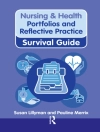CARING FOR THE DISPLACED AND UNINSURED
An essential text to understanding key aspects of caring for uninsured people from underserved populations
Caring for the Displaced and Uninsured presents clinical case studies that focus on the issues faced primarily by patients who are uninsured, self-paying, or are visiting from their home countries. While addressing the clinical aspects of primary care for a variety of conditions, these case studies go a step further to confront the issues faced by patients who seek care in clinics for the uninsured. Each case highlights the challenges presented by cultural, language and economic differences to providing high quality care, in particular for those whose jobs negatively affect their health, such as through musculoskeletal pain, neurological problems, prolonged standing, depression, or anxiety about feeding and housing their families.
The cases explore how the healthcare provider approaches care with insufficient resources for patients who may have fled torture and violence, poverty and homelessness to face new challenges in the United States. The healthcare provider plays a key role in the adjustment of people seeking a better life for themselves and their families.
Caring for the Displaced and Uninsured addresses:
* Issues related to family, medication, food, housing, finances, work, trauma, mental health, specialty access, delayed screening, visitors, and immigration
* How to think in broader terms when treating immigrant or uninsured patients
* The nuances of treating patients who have lived outside of their home country, apart from their families, for many years
* Tips for providing quality healthcare within the parameters that currently exist in the healthcare system
This text provides valuable insight and perspective for nursing and healthcare students, particularly those taking community health classes and classes that focus on uninsured and underserved populations.
Inhaltsverzeichnis
Acknowledgments ix
Preface x
Part I Cases 1
1 Family Issues 3
Evangeline 3
Florence 5
Gloria 7
2 Medication Issues 9
Ali 9
Ethan 11
Juan 13
Margarita 15
Paula 17
Rosa 20
Santiago 21
3 Food or Housing Issues 25
Carmen 25
Luciana 27
Michelle 30
Paul 31
4 Financial Issues 35
Glenda 35
Guillermo 38
Lisette 39
Lucia 41
5 Work-Related
Issues 44
Karla 44
Mateo 46
Natalia 48
Pedro 50
Regina 52
6 Trauma/Mental Health Issues 57
Alba 57
Elena 58
Miguel 61
Darva 63
7 Specialty Access Issues 67
Carlos 67
Sergio 70
Valeria 72
8 Delayed Screening 75
Aurora 75
Mirikit 77
9 Visitors 79
Franz 79
Marcos 81
Trang 83
10 Immigration Issues 87
Gabriela 87
Isabella 89
Ivanna 92
Junior 95
11 Other 98
Julio 98
Mario 100
Ramon 102
Part II Dilemmas and Decisions 105
12 Family Issues 107
Evangeline 107
Florence 109
Gloria 110
13 Medication Issues 111
Ali 111
Ethan 113
Juan 115
Margarita 116
Paula 118
Rosa 119
Santiago 119
14 Food or Housing Issues 123
Carmen 123
Luciana 124
Michelle 125
Paul 127
15 Financial Issues 131
Glenda 131
Guillermo 133
Lisette 135
Lucia 139
16 Work-Related Issues 141
Karla 141
Mateo 142
Natalia 144
Pedro 144
Regina 146
17 Trauma/Mental Health Issues 149
Alba 149
Elena 150
Miguel 151
Darva 152
18 Specialty Access Issues 154
Carlos 154
Sergio 155
Valeria 158
19 Delayed Screening 160
Aurora 160
Mirikit 161
20 Visitors 164
Franz 164
Marcos 165
Trang 166
21 Immigration Issues 170
Gabriela 170
Isabella 171
Ivanna 172
Junior 174
22 Other 176
Julio 176
Mario 177
Ramon 179
Conclusion 181
Index 183
Über den Autor
Leslie Neal-Boylan, Ph D, APRN, CRRN, FAAN, FARN, is a Nurse Practitioner in Rockville, MD, USA.












